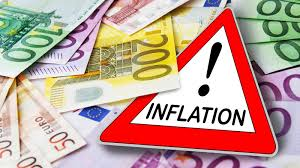Inflation
I
is an economic concept that refers to the rise in the general price level of goods and services in an economy over a period of time. It is measured by the Consumer Price Index (CPI), which is a measure of the average change in prices paid by consumers for a basket of goods and services.
Inflation is a natural part of an economy, but when it is too high, it can cause serious economic problems. High inflation can lead to decreased purchasing power, increased unemployment, and can even lead to a recession.
The Federal Reserve sets an inflation target of 2% annually. This target is meant to keep inflation low and stable, while allowing the economy to grow. The Federal Reserve uses a variety of tools to keep inflation in check, such as raising or lowering interest rates, increasing or decreasing the money supply, and adjusting the federal funds rate.
Inflation can be caused by a variety of factors, such as increases in the money supply, increases in government spending, or increases in demand for goods and services. It is important for governments and central banks to keep inflation in check, as too much inflation can lead to economic instability.
Inflation can have both positive and negative effects on an economy. Low inflation can lead to increased economic growth, while high inflation can lead to decreased economic growth. It is important for governments and central banks to keep inflation in check, as too much inflation can lead to economic instability.



Yorumlar
Yorum Gönder